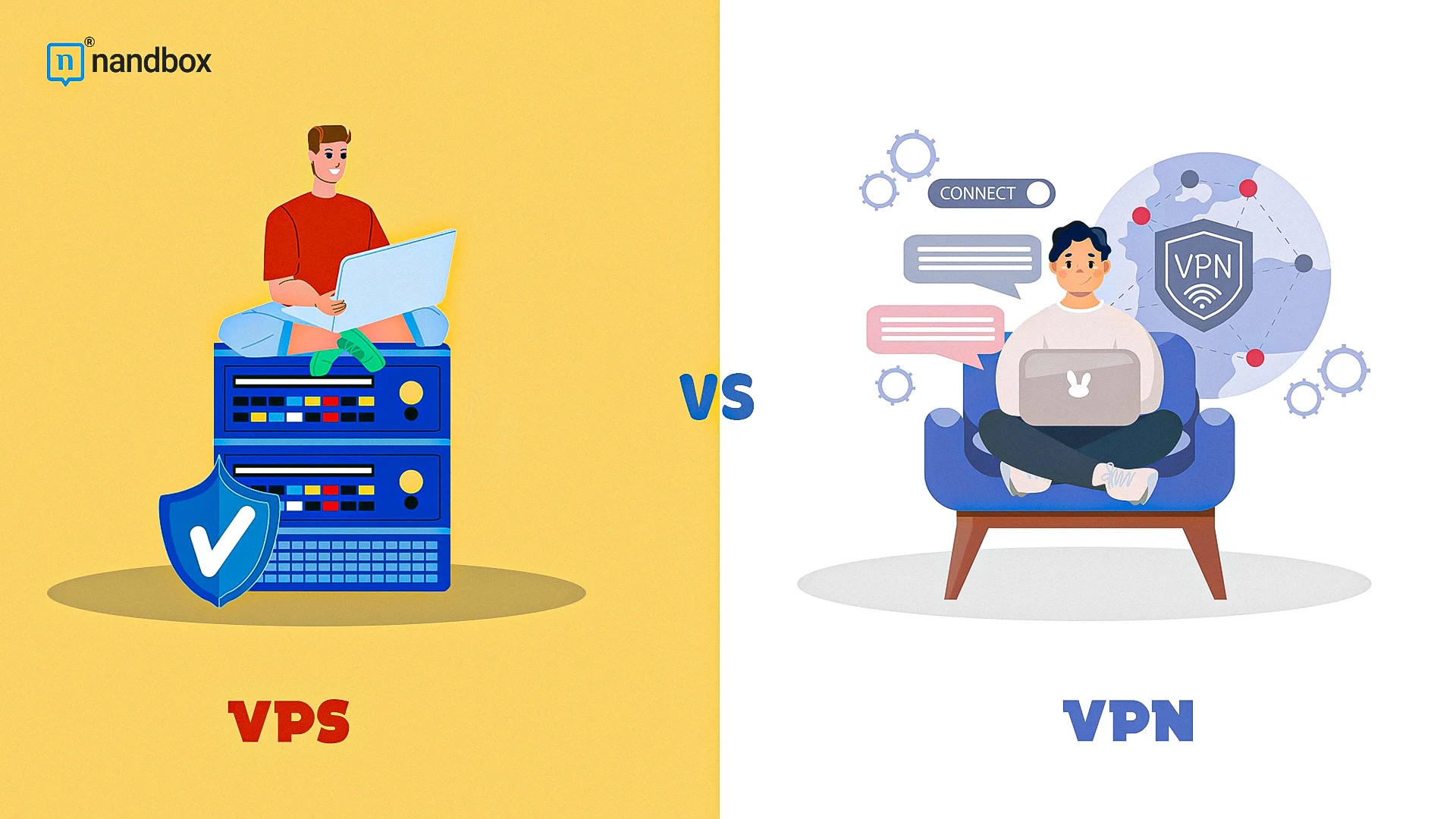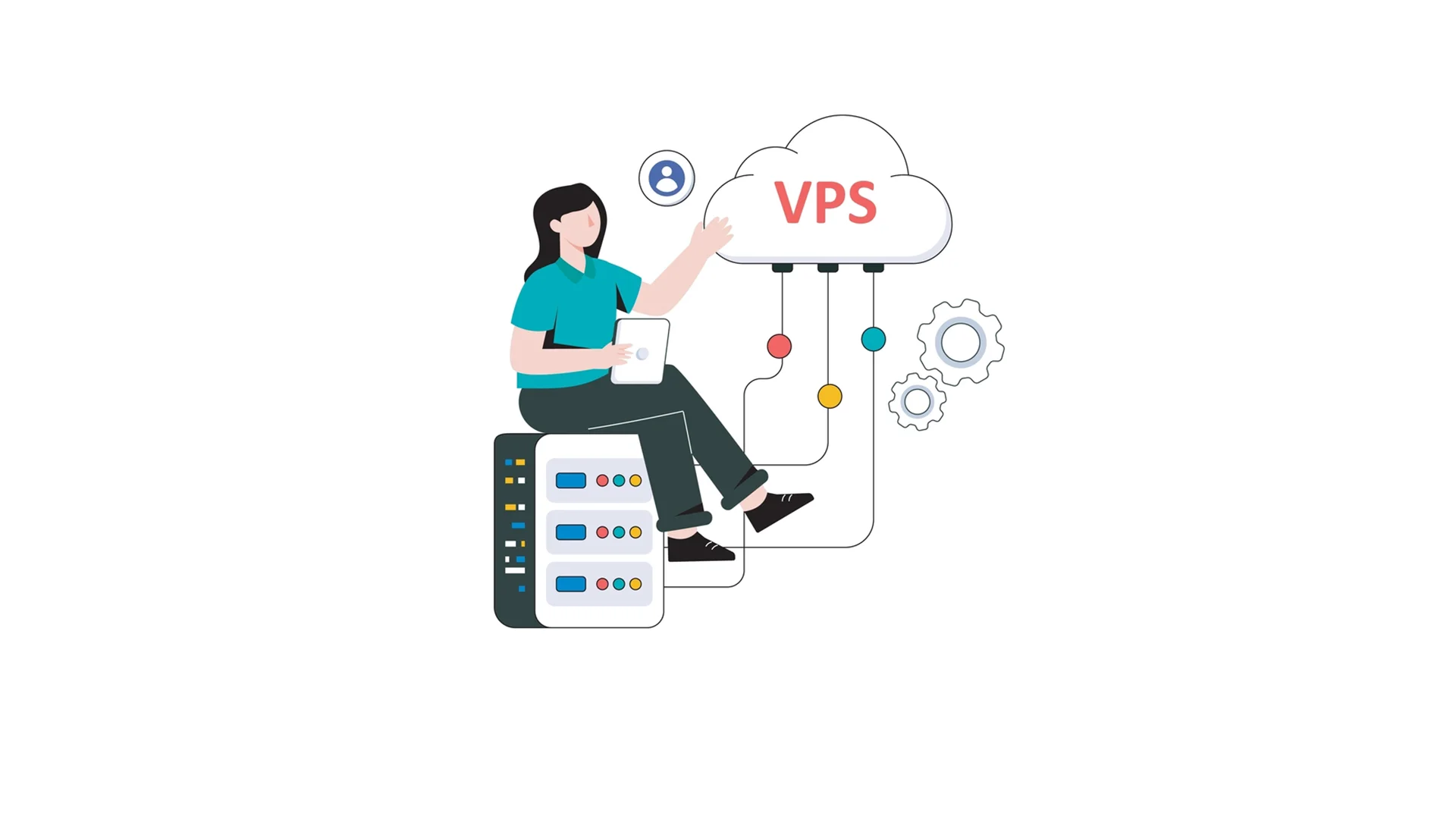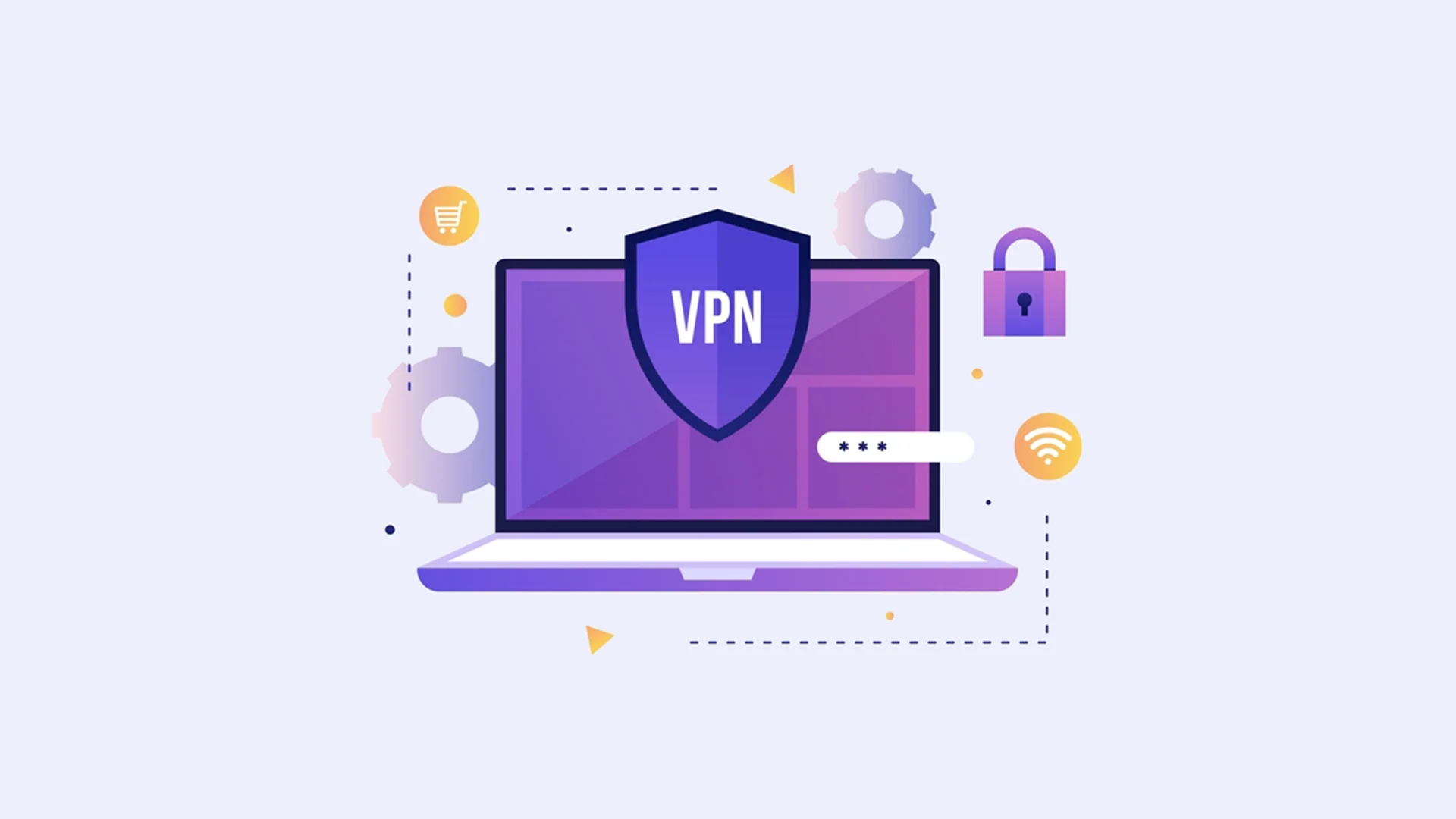VPS and VPN differences: VPN technology allows you to keep your online activities anonymous and private. It ensures your security and privacy on the internet by encrypting data and hiding your location.
On the other hand, a VPS is a virtual server that allows you to perform server-related tasks such as hosting websites, running applications, and managing server tasks.
Overall, VPS’s functionality is much broader. With vps server buy options that offer appropriate processing power, you can benefit from the robust infrastructure you need to implement your ideas and projects. Best of all, it’s surprisingly budget-friendly!
What Is a VPS (Virtual Private Server)?
VPS is a virtual container of a powerful physical server created through virtualization techniques. Although each physical server is divided into several VPSs, each resource is dedicated and used independently. This server is hosted online, but when you connect to it, your experience will be exactly like that of your local computer. The exclusive use of server resources and the freedom to run various configurations and install software are all advantages of VPS.
So, if you are looking for a cost-effective solution to host your website or applications, you can safely trust VPS.
How Does a VPS Work?
VPS works using a complex process called virtualization. The virtualizer is installed on a physical server to add a virtualization layer to the hardware. This allows hosting providers to create multiple separate virtual servers from the resources available on a single physical machine. Although all VPSs are located on the same physical server, each has its own resources. VPS users do not have access to each other’s data, and each user with root access can independently perform tasks such as installing software, configuring settings, customizing the interface, and so on.
What Is a VPN (Virtual Private Network)?
VPN is an encryption technology that routes traffic through a private tunnel to increase users’ online privacy. VPN comes in the form of an app or software, and by installing and connecting to it, you can hide your online identity or IP address. On the other hand, with the new IP assigned to you by the VPN, you can access censored or blocked content for your original IP.
How Does a VPN Work?
When you install and connect to VPN software on your system, the service immediately encrypts your data and routes it through a VPN server. This encryption scrambles your data, making it unreadable and untraceable to others, including hackers.
Additionally, routing your traffic through a VPN server replaces your original IP address with a new one. This masks your location, keeping it hidden from the websites or services you access. Your internet connection is secured through an encrypted tunnel, ensuring the privacy and protection you expect.
VPN vs VPS: Key Differences
Although these two technologies are beneficial for networking and the Internet, they have extensive differences, which this section will examine.
1. Functions
These two services are used in entirely different areas:
Primary uses of a VPN
- Hide the original IP address
- Browse the Internet with an alternate IP
- Encrypt your data and private activities online
- Hide browsing history from digital advertisers and ISPs
- Increase the security of public WIFI connections
- Access blocked sites and services for users in specific locations
- Access location-specific services such as banking and credit services
Primary uses of a VPS
- Hosting a website or application
- Hosting a dedicated game server
- Setting up VoIP
- Data storage and backups
- Software testing and development
- Hosting a private VPN
- Hosting email servers
- Hosting media streaming platforms
- Secure and fast trading in the stock market and cryptocurrency
- Managing network settings
2. Ease of Use
Using a VPN does not require any special technical knowledge. Just install the VPN client on your system and connect to the Internet using it. The only setting that may be needed is to select the desired location from the list of available servers.
However, working with a VPS requires basic knowledge of servers and system administration. FIt also requires familiaritywith managing the operating system and network settings, installing and configuring software, and hosting a website or application. Of course, it depends on your purpose for buying a VPS and what knowledge you need. In general, the knowledge required to use a VPS is much more extensive than that required to use a VPN.
3. Security
TA VPN’s primary purpose is to encrypt data and hide users’ online identities, which is useful for increasing security. However, it cannot directly protect your server or network infrastructure. If the VPN provider is untrustworthy and uses private information to your advantage, you will instantly lose all this security. Using weak protocols such as PPTP can also increase the system’s vulnerability. VPS plays a more important role in the network infrastructure, and any security flaws and weaknesses can be more risky. The security of a VPS depends to some extent on the security of the physical server and the security solutions implemented by the provider.
However, the good thing about a VPS is that the user has complete control over the security settings and can configure them according to their needs. If you fulfill your responsibility in terms of security configurations, such as installing a firewall, managing permissions, etc., the level of security of a VPS will be very high. However, any negligence in this area can expose your business or project to hacker attacks.
4. Performance
The speed and performance of a VPN depend on the speed of data encryption, IP assignment, and the distance between the client and the VPN server. These can cause a VPN connection to be slower than a normal connection. The performance of a VPS also depends on its hardware resources. If you choose a plan that meets your needs, you can fully enjoy its speed and performance.
5. Cost
In the overall solution to evaluate the differences between VPS and VPN, they should first be examined from a common aspect to compare cost. VPN and VPS have in common that both provide you with a dedicated IP address, which you can use to access the programs and services securely and anonymously. If you just want to do this, a VPN is more affordable than a VPS. But if you have bigger goals like launching a website or application, a VPN will never work for you. However, VPS is the most affordable solution. It provides you with an infrastructure with dedicated resources so that you can focus independently on implementing your projects.
VPS vs VPN: Challenges
VPS and VPN are valuable technologies that offer benefits but come with challenges and limitations. Being aware of these limitations can help you make a better choice for your needs.
VPN limitations
- Possibility of privacy compromise in case of provider security breach
- Increased vulnerability of data and sensitive information in case of older VPN protocols, such as PPTP
- Reduced internet speed due to an additional tunnel for data encryption and traffic routing
- Limitations of VPN use in some countries
- No guarantee of complete anonymity
- No control over VPN servers
VPS limitations
- Requires technical knowledge for configurations and settings
- Higher cost of VPS compared to VPN
- User responsibility for security
- Requires resource management
- Issues due to physical server hardware failure
- Possibility of performance and security issues if VPS providers fail to isolate resources
- Requires continuous backups
In general, VPN challenges are more related to trust, protocol security, and speed reduction, while VPS limitations are centered around technical management, costs, and security responsibilities. Choosing between these two technologies requires a thorough understanding of your needs, resources, and ability to deal with these limitations.
When Should You Use a VPN?
Choose a VPN if:
- You want to connect to public Wi-Fi.
- You want to browse the internet securely and anonymously.
- You need to replace your real IP with another IP to use the service or site in question.
- You don’t want the content of your searches to be traceable, even by ISPs.
- You want to bypass regional restrictions on content, social media, streaming services, etc.
- You want to prevent price discrimination based on your actual location.
- You want to avoid targeted ads.
When Should You Use a VPS?
Choose VPS if:
- You want to host a website or application with a cost-effective solution.
- You want to use censored content and applications with greater security and stability.
- You need high speed and a static IP for trading.
- You need root access to the system to apply network-related settings.
- You want a scalable hosting environment that can grow with your business or project requirements.
- You require a dedicated environment to run resource-intensive applications like databases, streaming services, or analytics tools.
- You need a private server to manage and store sensitive business data securely.
- You are a developer or IT professional looking to create isolated environments for testing and deployment of projects.
- You plan to host multiple services, like mail servers, FTP servers, or game servers, without relying on shared hosting providers.
- You require full control over server performance, enabling precise optimization and resource allocation.
nandbox App Builder
Knowing the distinctions between VPS and VPN is essential when selecting the best digital infrastructure for your company. You may improve security and performance by integrating these technologies with the aid of nandbox, a top business platform. Businesses can manage their own dedicated resources for better control and scalability by using a virtual private server, or VPS. nandbox App Builder can help you choose the ideal VPS and VPN combo to streamline the operations of your company and guarantee dependable performance and secure communication.
Conclusion
The choice between VPS and VPN depends on your specific needs and goals. If your primary focus is online privacy, secure browsing, and bypassing restrictions, a VPN is the ideal solution. However, if you need dedicated resources, flexibility, and control for hosting websites and applications or managing advanced projects, a VPS provides the robust infrastructure you require.






